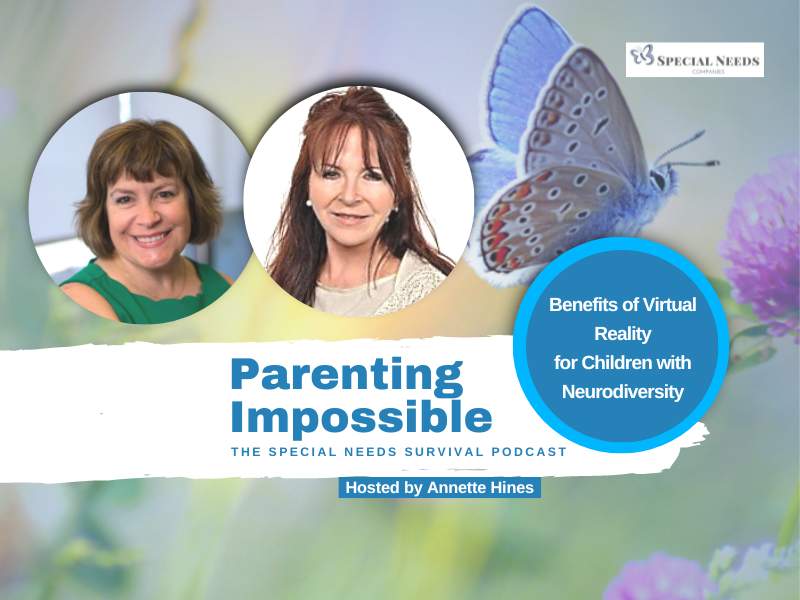This is the first in a two-part series focusing on technological advances and how technology can improve the lives of people with disabilities. Assistive technology offers a range of helpers from a reader for books on tape to Braille to a range of assistive apps to button switches that allow people to communicate for them. Host Annette Hines describes the technological advances she’s witnessed in the Eyegaze software a young man she’s been assisting for many years as well as the innovations of companies like Google, Microsoft, and Amazon to create assistive technologies for improved lifestyles of people with disabilities.
Guest, Ange Anderson M.Ed discusses the benefits of technological interventions to support students with learning differences that she has employed in the UK. She asked the question, how can we use the technology neurodivergent students enjoy and are comfortable with to gain control and make life easier for teachers, staff, and students? Computer programs are logical, predictable, and can provide a reliable outcome, unlike real life situations. VR (virtual reality) activates the motor cortex in our sensory system in a way that is similar to real life situations and gives students the feeling of being in a virtual environment. During her work as an educator, she has found that VR helps students practice scenarios that appear like real life situations so that they can prepare to better encounter the actual situation in life. The VR room at her school provides the ability for students to develop a familiarity with a new situation such as a dentist office or store so that they can be successful once encountering the real world.
Ange Anderson M.Ed opened and led an innovative specialist school in North Wales for 10 years, introducing over 25 different therapeutic/technological interventions to support pupils with learning differences. She’s written a number of books on therapeutic and technological interventions including Therapeutic Trampolining for Children and Young People with Special Educational Needs. Anderson also presents internationally on topics related to special education, such as supporting children and adults with neurodiversity. She is also the special educational needs (SEN) advisor for a global VR company. You can learn more about her work and find resources on her website: angeandersontherapeutic.co.uk

